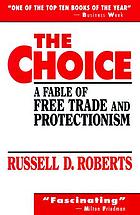Once upon a time, in a small village nestled in the rolling hills of the countryside, there lived a group of farmers who tended to their fields and animals with pride and hard work. These farmers had always been self-sufficient, producing all of the food and goods they needed for themselves and their families. However, as the years went by, the village began to grow and change. More and more people moved in, and with them came new ideas and ways of doing things.
One day, a group of merchants arrived in the village, offering to trade goods and services with the farmers. They brought with them exotic spices, fine fabrics, and other luxurious items that the farmers had never seen before. The farmers were fascinated by these new goods and eagerly agreed to trade some of their own produce and livestock for them.
As the trading continued, the merchants became increasingly successful. They were able to sell the goods they brought to the village at a higher price than they had paid for them, making a profit in the process. The farmers, too, were able to sell their goods for more than they had originally paid for them, and they began to prosper as well.
But as the merchants grew wealthier, some of the farmers grew uneasy. They began to worry that the merchants were taking too much of the village's wealth and that their own prosperity was at risk. They called for the village council to impose tariffs and restrictions on trade, arguing that it was the only way to protect their own interests and ensure that the village's wealth was distributed fairly.
The council was divided on the issue. Some argued that free trade was the key to prosperity and that the farmers should embrace it. Others argued that protectionism was necessary to safeguard the village's resources and ensure that the wealth was shared more evenly.
In the end, the council decided to try both approaches and see which one worked best. They allowed free trade to continue, but also imposed tariffs and restrictions on certain goods to protect the farmers' interests.
At first, the farmers who had supported protectionism were pleased with the council's decision. They saw their own incomes rise as the tariffs kept the prices of foreign goods high and their own goods in demand. But as time went on, they began to realize that the tariffs had unintended consequences.
The merchants, who were now paying more for the goods they brought to the village, began to charge higher prices to compensate. This made the foreign goods even more expensive, and many of the villagers could no longer afford to buy them. As a result, the merchants began to struggle, and some of them even went out of business.
The farmers who had supported free trade, on the other hand, saw their own incomes continue to rise as they were able to sell their goods to a wider market at a higher price. They also had access to a wider variety of goods and services, which made their lives more comfortable and enjoyable.
In the end, the council realized that free trade had been the better choice for the village. While protectionism may have helped some in the short term, it ultimately hurt everyone in the long term by stifling innovation and growth. From then on, the council decided to embrace free trade and allow the market to determine the prices and distribution of goods and services.
And so, the village prospered as the farmers and merchants worked together to create a thriving, dynamic economy. They learned that the choice between free trade and protectionism was not an easy one, but that in the end, free trade was the path to prosperity and progress.





